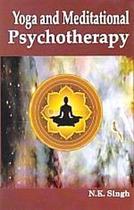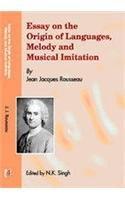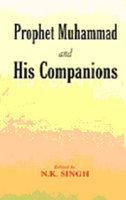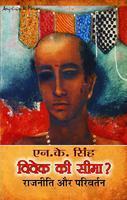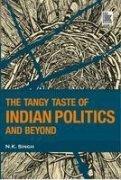 26.0%OFF
26.0%OFF

Download App
 26.0%OFF
26.0%OFF
Tangy Taste Of Indian Politics And Beyond
-
ISBN
:
9788122007947
-
Publisher
:
Agenda
-
Subject
:
Others
-
Binding
:
HARDCOVER
-
Pages
:
300
-
Year
:
2011
₹
795.0
 26.0% OFF
26.0% OFF
₹
588.0
Buy Now
Shipping charges are applicable for books below Rs. 101.0
View DetailsEstimated Shipping Time : 5-7 Business Days
View Details-
Description
With Independence came power in the hands of the politicians. Power, it is said, corrupts and absolute power corrupts absolutely. Rumours of corrupt practices against the Congressmen, who till then were held in high esteem, started doing rounds even before Independence, no sooner than they joined State Governments as Ministers in 1937 under the 1935 Act. This had perturbed Mahatma Gandhi greatly. Even in 1928, he had written in Young India that drastic measures were needed to be taken against corruption, to prevent the party from being overtaken by decay. Gandhi s writings during the last days of his life clearly indicated that such allegations against Congress Ministers caused him deep anguish. In December 1947, when Gandhi was in Delhi, he received a letter from Konda Venkatappaiah of Andhra Pradesh, a veteran freedom fighter whom Gandhi had described as an aged friend. In his letter, Venkatappaiah had referred to the moral degradation of the Congress legislators who were making money by use of influence and obstructing administration of justice in criminal courts . He ended his letter with a stinging comment: The people have begun to think that the British Government was much better. It was around this time that Gandhi had suggested that the Congress be dissolved. After Gandhi passed away, Sardar Vallabhbhai Patel, as Minister in charge of Home, was tough with corrupt elements. Late LP Singh, ICS, former Union Home Secretary, relates a very small but significant incident in Bihar where he was Chief Secretary. In his book, Portrait of Lal Bahadur Shastri, Singh recounts how much Patel was feared by the corrupt Congressmen: Sardar Patel had certainly dealt with corrupt politicians with a strong hand. For instance, it is within my personal knowledge that fear of strong action from him acted as deterrent to unscrupulous politicians. I can still remember the expression of relief on the face of a Minister in Bihar, who had misused his power and had been censured by Patel, when news of Patel s death was announced in December 1950. Not that Nehru was soft on corruption either. But, seemingly, his mind travelled on a different plane and he was more of a visionary than a hard taskmaster to bother about affairs like corruption. In the process, some of his colleagues took undue advantage and the Nehru era was rocked with allegations of scandals the Jeep Scandal that involved the then High Commissioner to UK, VK Krishna Menon; the Mundra Scandal involving then Finance Minister TT Krishnamachary; and, the Sirajuddin affair of Odisha that involved Union Minister KD Malaviya. But sooner or later, they had to quit their posts. In April 1997, a leading economic magazine quoted former CBI Director John Lobo as saying, Just one scam, the Dharam Teja affair, was enough to rock the sixties. Broadly speaking, it was so till Shastri era and in the first few years of Indira Gandhi coming to power, maybe till Bangladesh war. The 1971 elections gave her a solid majority, fame and the victory in Bangladesh war. Thereafter all norms were thrown to the winds. Mrs Gandhi s Government was rocked by several scandals, including the one favouring Sanjay Gandhi in his Maruti car project. Since then, the situation has deteriorated from bad to worse.
Related Items
-
of












 588.0
588.0





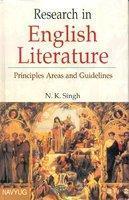
 514.0
514.0

